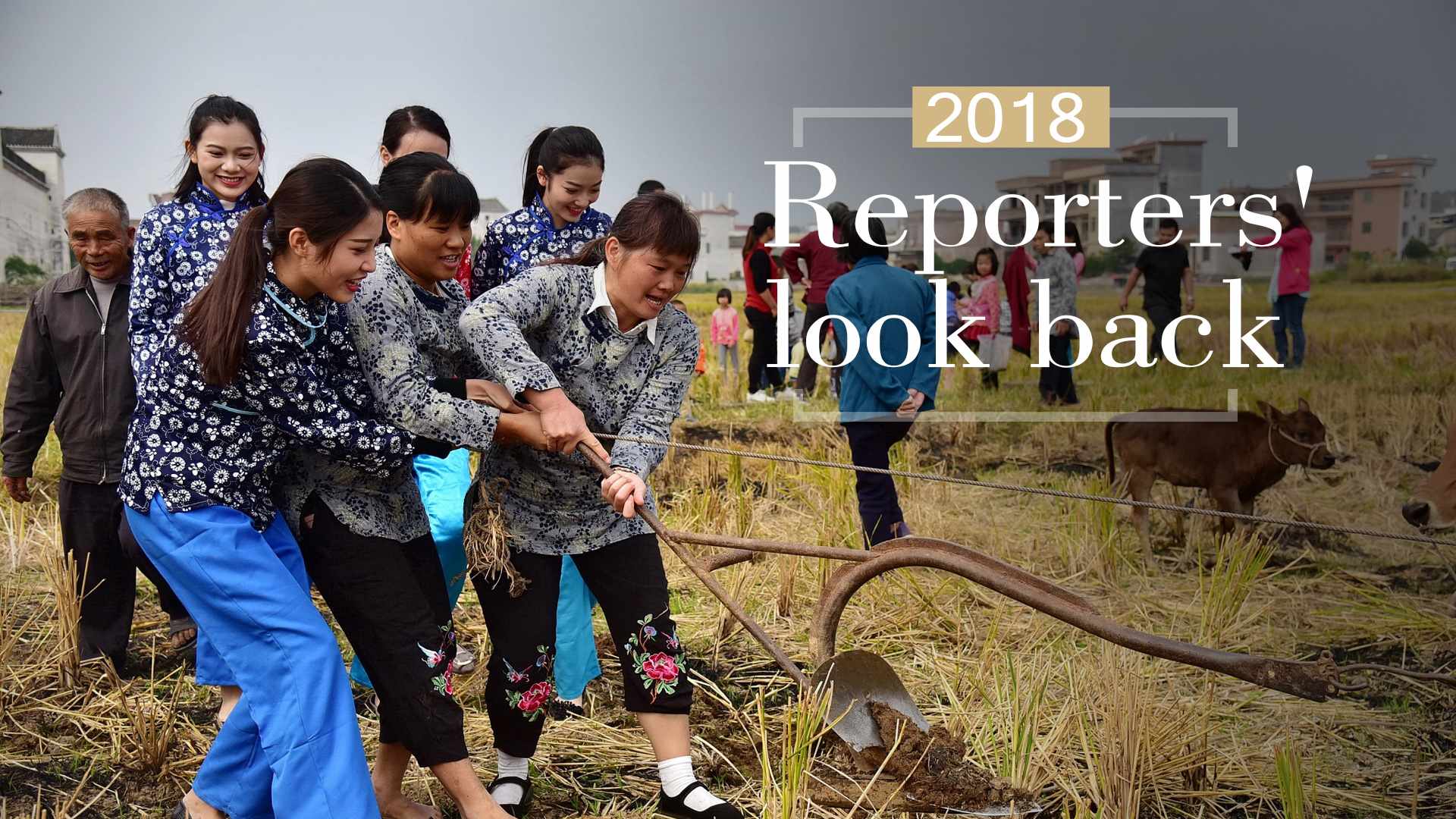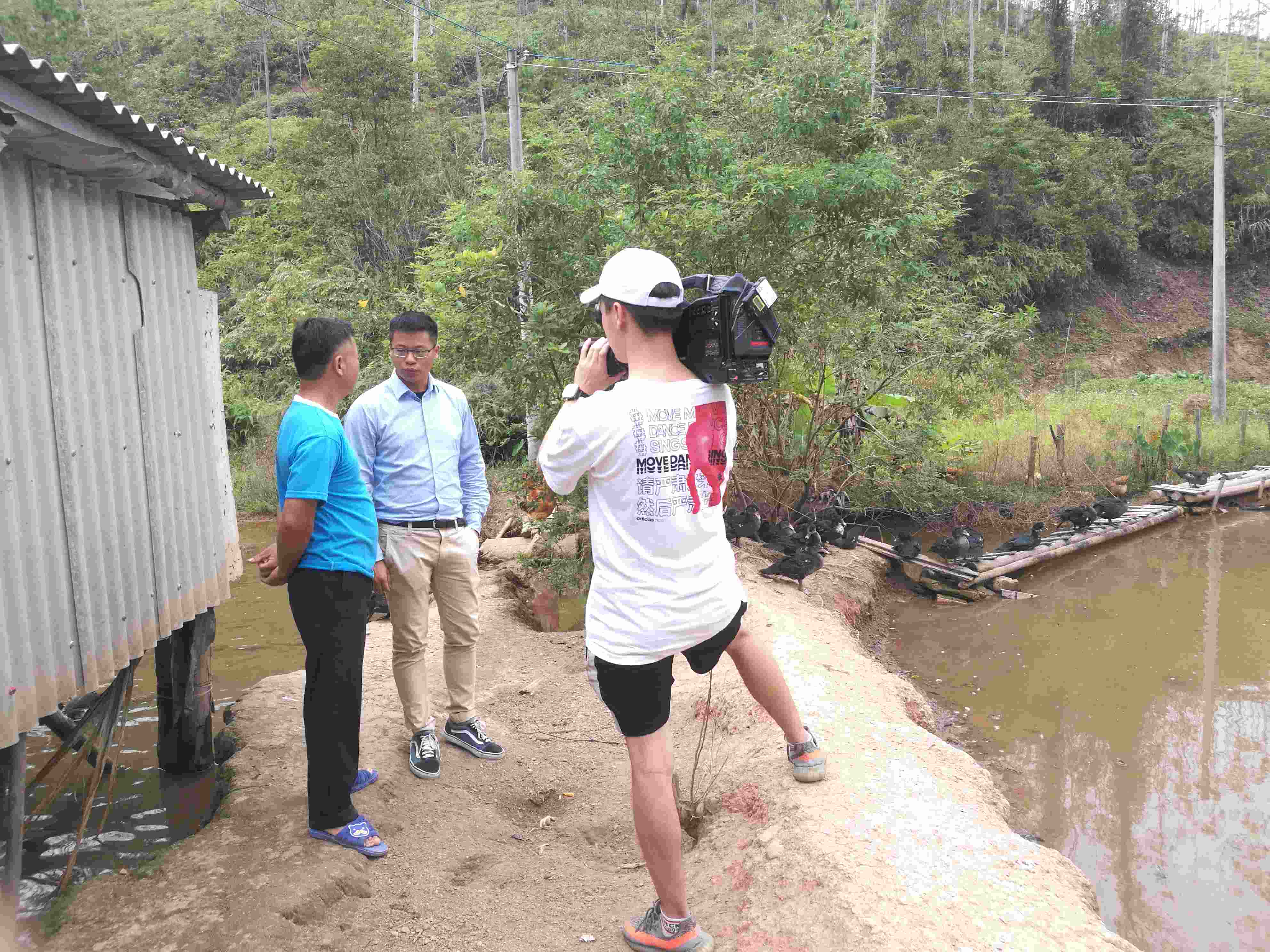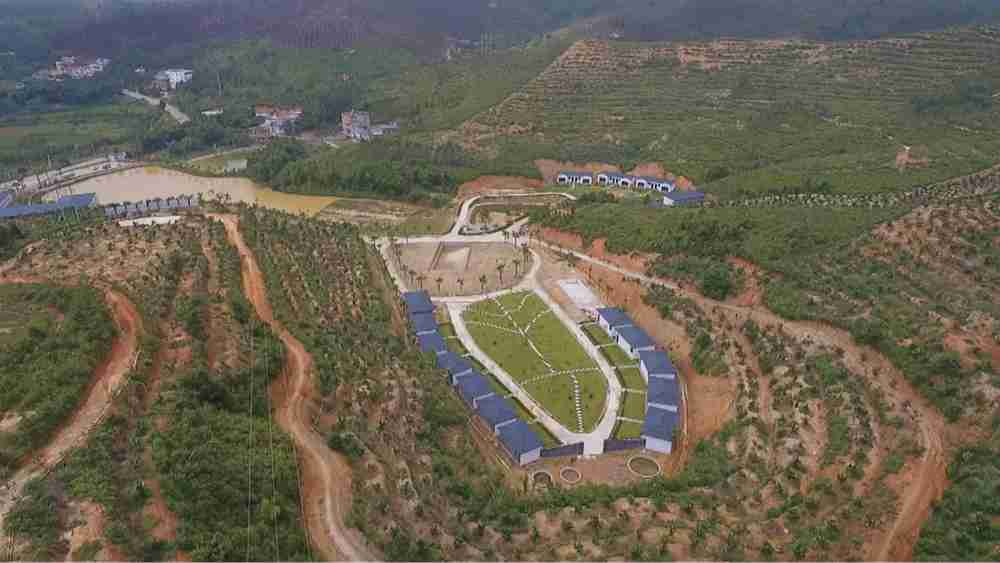
China
16:32, 26-Dec-2018
2018 Reporters' look back: People out of poverty, better life guaranteed
Updated
15:56, 29-Dec-2018
By Cui Huiao

For someone born and raised in a metropolitan city, I unabashedly admit that I used to be pretty out of touch with the subject of poverty. Despite reading all the social theories about the cause of poverty back in college, it is only after I became a TV reporter that I started to see things in perspective.
For two years in a row, I was tasked to write stories on places that were once stricken by poverty. Like most rural areas in China that have been in this battlefield, the villages I visited in Guangdong have showcased that familiar but exhilarating change – infrastructure has been improved and people are much better off. But, as China takes pride in its achievements in lifting millions of people out of abject poverty, few, whether living in or outside China, have a clear picture in mind as to how these “miracles” were made real.
Obviously, there is no single answer to this question. A long list of factors have contributed to the rapid reduction of poverty – like precision targeting, full-swing commitment, smart allocation of resources, a set of effective tools, just to name a few.

Liu Weikun, a local villager from Zijin County, Heyuan city, Guangdong Province, talks to CGTN, October 10, 2018. Liu is part of a group of villagers who have been lifted out of poverty. /CGTN Photo
Liu Weikun, a local villager from Zijin County, Heyuan city, Guangdong Province, talks to CGTN, October 10, 2018. Liu is part of a group of villagers who have been lifted out of poverty. /CGTN Photo
Among various contributing factors, innovation is what I found to be a crucial one. At the Jinguang village in Heyuan City, an e-commerce platform has made a huge difference. One villager set it up to sell local produce like poultry and grapefruits to millions of “invisible” customers online. From “nowhere to sell” to “sell to the whole world,” farmers like Liu Weikun are now able to make a steady stream of income and live in a decent three-story home.
Xinmin, another village in Heyuan, has lifted its 140 residents above the poverty line. As part of a broader national scheme called counterpart assistance, a Shenzhen state-owned enterprise has brought its work team to this mountainous region. Months of thorough research and evaluation finally led to a bold decision to develop the tea industry. The captain of the work team Liu Yantao told me they have considered traditional industries like growing vegetables, poultry, and fruits, but eventually those were all crossed off. “Tea has a number of advantages that those (industries) do not, including a stable market price, ease of storage, and being less weather dependent.”
Things have panned out, just like the way Liu and his team had expected. Despite some hiccups along the way, the terrace yielded around 1,200 kilograms of tea last year. Villagers like Qin Guozhong receive half of the tea revenue as dividends. The story does not end there, much to my surprise and that of many others. Villagers are required to use the dividend to buy more cows and chickens, so that their income can grow bigger and bigger.
02:45

These approaches are both innovative and scientific. It explains why poverty-reduction investment has seen big returns. Some villages are now eyeing the burgeoning rural tourism, renovating guesthouses and utilizing the natural beauty of the countryside. The goal is to attract city dwellers who want to get away from the hustle and bustle. “Nong Jia Le” (which in Chinese means “tourism in the countryside”) will most definitely bring more money to villagers who no longer have to rely solely on unpredictable yields from farming.
Given all the examples above, I was most touched when I visited a newly-built middle school in Heyuan city. It's part of the counterpart assistance project with an investment of around 140 million RMB funded by Shenzhen. The school was built to provide high-quality education, hopefully on par with those in first-tier cities, and not only for Heyuan residents, but also people like Tang Ziyi, whose parents are migrant workers.
Without this lifeline, Tang's entire family would have no choice but to move back to Hunan, their home province. Now, her parents have much less stress as their daughter is three months into the first semester at her new school. She told me she has made a ton of friends and she is more than happy living on a beautiful campus for free, with access to a new playground, piano rooms, and the best teachers she has ever had.
The country is set to eradicate absolute poverty by the year 2020, which is also the year when China aims to complete the transformation to a “moderately prosperous society.” To achieve both goals is of course no easy task. But after visiting these villages and talking to government officials, rural villagers and their families, my optimism is as high as it can be. I have started to understand that things appear to happen so seemingly effortlessly and fast in this country only with concerted efforts and concrete measures.

SITEMAP
Copyright © 2018 CGTN. Beijing ICP prepared NO.16065310-3
Copyright © 2018 CGTN. Beijing ICP prepared NO.16065310-3